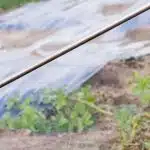As a parent, you work hard to keep your kids as safe as possible, and it’s scary to think that dangerous chemicals could be making their way into your child’s lunchbox. While there are plenty of scary ingredients that can make their way into foods, a recent research report focused on the inclusion of glyphosate in kid-friendly foods like Oreos, Doritos, Goldfish, and Cheerios.
Free Case Evaluation
If you or a loved one were harmed by using Roundup Weedkiller you could be entitled to compensation.
![]()
Glyphosate is the active ingredient in the controversial Roundup weed killer. Since glyphosate is used to kill weeds in agricultural settings, it makes sense that the chemical would find its way into foods.
Thankfully, experts agree that the level of chemical residue found in children’s snacks is likely too low to cause harm to children. According to Dr. Wayne Parrott and Dr. William Vencill, professors at the University of Georgia’s Department of Crop and Soil Sciences, “They are giving the impression that foods are contaminated with glyphosate, and if the glyphosate was not there, the foods would be otherwise pure, which is false. They found glyphosate in foods because they looked for it. Had they looked for other herbicides used in agriculture, they would probably have found them too.”

Thankfully, the study found that the glyphosate levels in kids’ snacks were far below the acceptable limits set by the Environmental Protection Agency. The EPA allows grains to have up to 30 parts per million (ppm) of glyphosate. Cheerios were found to have 1.125 ppm of glyphosate, while Honey Nut Cheerios were found to have 0.670 ppm of glyphosate.
While the amount of glyphosate in kids’ snacks isn’t a current cause for concern, it makes sense for parents to be worried about the headlines glyphosate has been making in the news in recent years.
What is Glyphosate?
Simply put, glyphosate is an herbicide, or weed killer, that’s used to kill certain plants and grasses. The chemical works on a large scale, allowing farmers, landscapers, and others who work with plants to use one chemical to kill many types of unwanted plants, rather than using many different chemicals to have the same effect.
The chemical was first registered for United States use in 1974, and quickly became one of the most popular herbicides in the country. Glyphosate can be used in solid or liquid form. The chemical kills certain plants by stopping the plants from making proteins that are necessary for them to grow. The chemical is used in many settings, including on farms, on corporate and personal lawns, and to control the growth of some aquatic plants.
Why Glyphosate Dangerous?
Both short- and long-term exposure to glyphosate can be dangerous for both people and animals. It can be tough for people who work with the chemical to avoid ingesting it, as it’s often used as a fine spray that permeates the air around both plants and workers.
In addition to breathing in glyphosate, it can also remain on the skin and clothes after use, and enter the body when the person who was exposed to the chemical eats, smokes, or drinks. Since the chemical doesn’t vaporize after it dries, it’s easy to become exposed following application.
What Health Problems Can Glyphosate Cause?
Short-term exposure can cause skin and eye irritation. Many people also experience reactions to other chemicals that are used in products like Roundup in addition to glyphosate. Breathing in the mist created when the herbicide is applied to agricultural areas can cause irritation in the nose and throat. People who are exposed to the chemical may also experience skin irritation.
Ingesting Roundup weed killer or other products containing glyphosate can cause burns in the mouth and throat, nausea, vomiting, diarrhea, and increased saliva. Ingestion of the product can be fatal.
Animals can also be harmed by touching or eating plants that have been treated with glyphosate. Effects of the chemical on animals can include drooling, vomiting, diarrhea, changes in appetite, and lethargy.
Studies from the International Agency for Research on Cancer from the World Health Organization report that glyphosate is likely a carcinogen, or a chemical that has the ability to cause cancer in the body. A 2019 study found that exposure to glyphosate could increase a person’s cancer risk by up to 41%.
If You or a Loved One Experienced Health Problems Caused by Roundup Weed Killer, We’re Here to Help.

Sadly, many people have experienced complicated health issues, and even death, following the regular use of Roundup weed killer. Bayer recently acquired Monsanto, the company behind the product, and needs to be held responsible for the health issues and deaths caused by glyphosate. Agricultural and landscaping workers who used glyphosate for years are especially at risk of health problems caused by regular exposure to the herbicide.
If you or a loved one have experienced health issues or death that you believe may be related to the use of Roundup weed killer, you don’t have to figure out your next steps alone. It can be scary to go up against big companies like Monsanto and Bayer, but doing so can help you get the compensation you deserve–and protect others from experiencing health problems due to corporate negligence.
We encourage you to reach out to us today to talk with one of our case experts about whether you may have a viable suit against Bayer due to problems related to Roundup weed killer. We’re on your side, and we’re here to fight for you.















